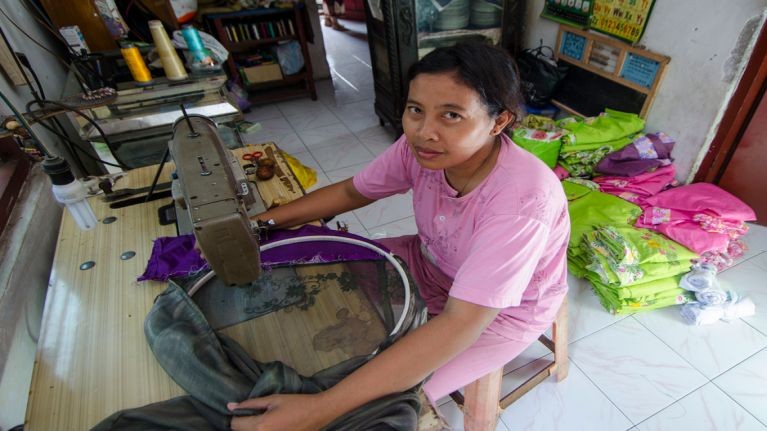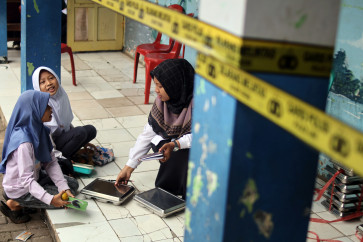Popular Reads
Top Results
Can't find what you're looking for?
View all search resultsPopular Reads
Top Results
Can't find what you're looking for?
View all search resultsUnions urge government to protect homeworkers
Change text size
Gift Premium Articles
to Anyone
T
rade unions have called on the government to issue a regulation that protects the rights of homeworkers, including a decent wage and safety as they have been neglected for years.
“We hope the minimum wage of the homeworkers could be close to the provincial minimum wage (UMP),” Trade Union Rights Center (TURC) program coordinator I Gede Pandu Wirawan said in a discussion in Jakarta on Thursday.
“Homeworkers should at least have the rights for social security, safety standards (K3), health and education. Then, they would understand the risk of their work,” he added.
Pandu also explained that homeworkers are different with domestic workers, and specific rules on homeworkers are not stipulated in the 2003 labor law.
According to the International Labor Organization (ILO), a homeworker can be defined as someone who, for a fixed rate of remuneration, carries out work in his or her home for an employer who is not the final consumer of the product or service provided.
Usually, homeworkers have to provide the production tools by themselves and their pay depends on the amount of goods they produce per day, Pandu said.
According to research by the Trade Union Rights Center from July 2015 to January 2016, there are hundreds of underpaid female homeworkers in Cirebon, North Jakarta and Tangerang.
For instance, it is known homeworkers in Penjaringan, North Jakarta, manually sew 10 to 25 pair of shoes, distributed by middleman of well-known international brands Buccheri and Elle, per day. They could get paid as much as Rp 3,000 (22 US cents) for each pair of shoes, with 10 to 12 working hours and no social security, Pandu said.
Most of the homeworkers are women, as they are available to work and take care of household chores at the same time, according to Pandu.
“It is like an iceberg. It is hard to count how many homeworkers in plain view as they work at home,” Pandu said.
Meanwhile, Dardiri Dardak, a program officer of Partner of Female Workers in Home Industries (MWPRI), also gave an example of homeworkers in Mojokerto, East Java, who had been manually gluing shoes and sandals for local brands. The chemicals in the glue have often led these homeworkers to asphyxiation, according to Dardiri.
He also said that 90 percent of the estimated 2,000 homeworkers in East Java were female.
“So, we can see there are ‘slavery’ practices that are maintained by the companies,” Dardiri said. “Without have to organize big buildings, electricity or tools, the companies can just employ hundreds of homeworkers.”
The advocacy of homeworkers is included in one of the National Development Planning Agency’s (Bappenas) programs called the Access to Employment and Decent Work for Women (MAMPU). The program has involved several NGOs like TURC, MWPRI, the Annisa Swasti Foundation and Bitra Indonesia. (vps/bbn)










